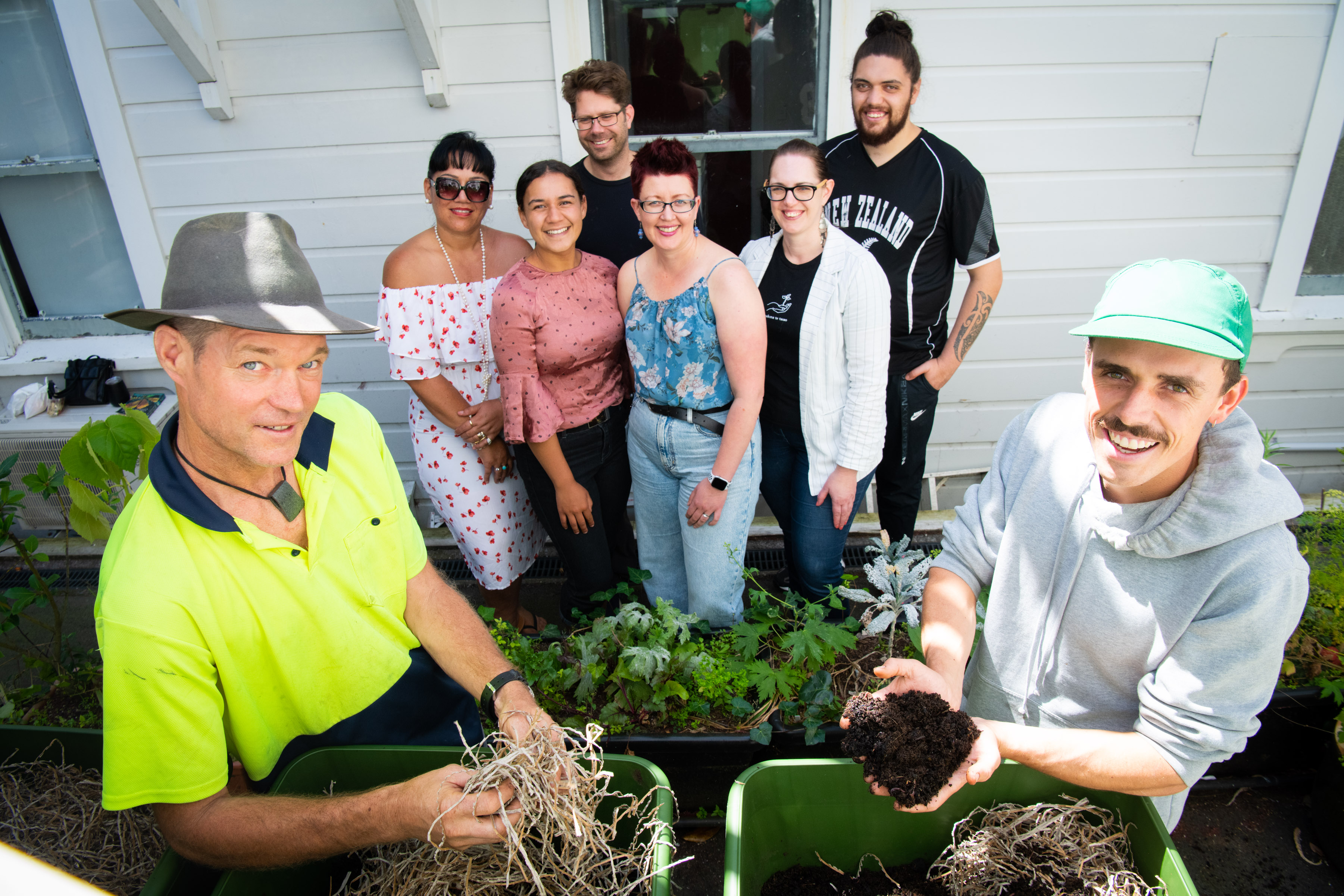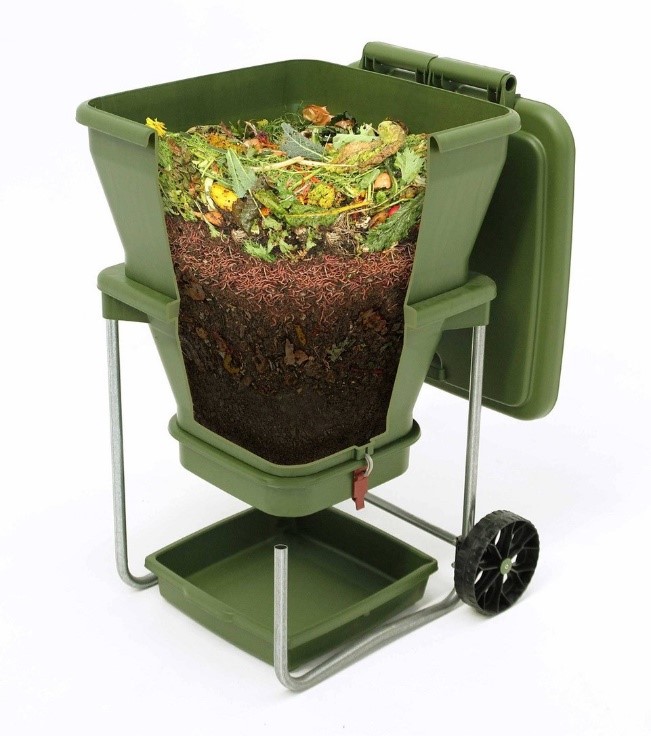Campus worm farms
Become a worm farm champion and help feed our on campus worm farms with food scraps from your office kitchen.
Worm farms are a great way to turn food scraps into one of the best garden fertilizers available.
Worms are in fact worm composting systems, or more correctly, vermicomposting systems, and earthworms are one of the fastest composters there are.
A Hungry Bin worm farm can process up to two kilogrammes of food waste a day.

Worms work fast
Worms can convert most kitchen scraps to finished compost in less than two weeks. First, fungi and bacteria, the primary decomposers, break down food scraps so the worms can digest them. Then using a grinding organ called a gizzard the worms break down the food further and produce worm “poop” castings or vermicompost. This nutrient rich material will be added to our campus gardens and plants.
Increasing worm population
Typically, a population of composting worms doubles every six months. Under ideal conditions as few as eight worms can become 1,500 worms in six months. Worms can live for about one year in the worm bin. If a worm dies in the bin, you probably will not notice it. Since the worms body is about 90% water, it will shrivel up and become part of the compost rather quickly. New worms are born and others die all the time.
Feeding our worms
Staff volunteers supply our worms with food scraps from office kitchens. To become a worm farm champion and receive a bench top caddy for your work place kitchen contact andrea.marsden@vuw.ac.nz
Download the Worm Farm Handbook
The Worm Farm Handbook guides staff on how the system works at Te Herenga Waka.
